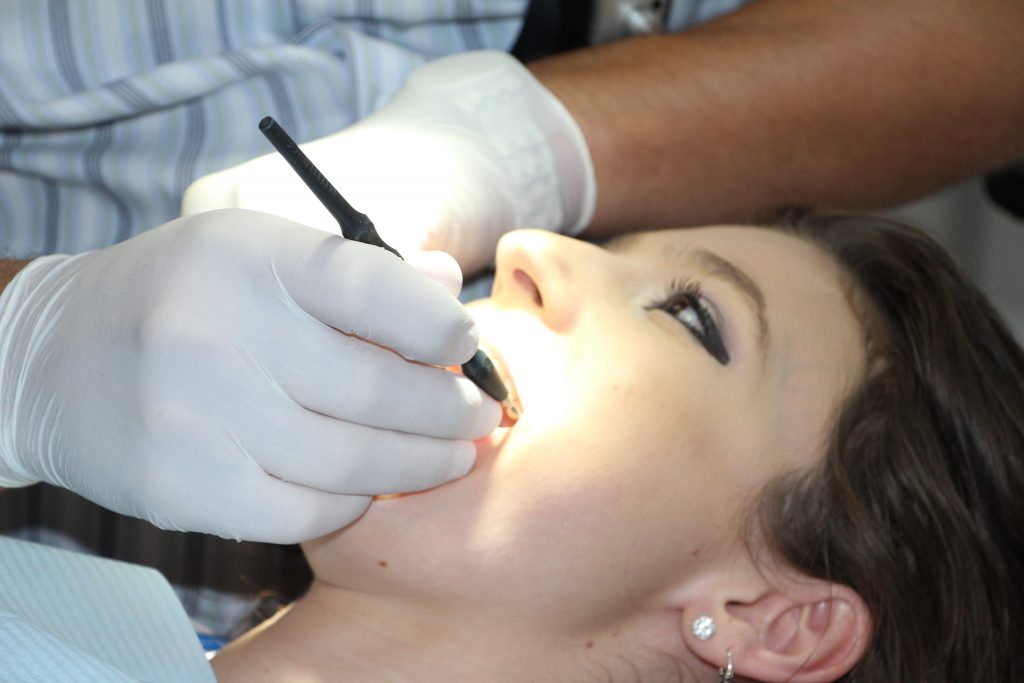
If you take good care of your teeth, brush them twice a day, and floss regularly, you may think you can give yourself an “A” in the oral hygiene class. But while you’re doing a great job, there might be a few things you’re missing, depending on your teeth’s needs.
While you’re taking care of your mouth’s day-to-day cleanings, bacteria can still build up in hidden, tucked-away spaces. These bacteria are tiny but mighty, especially when they colonize. Colonies of tens of thousands of little germs, out of reach of the typical toothbrush and mouthwash, collect and cause decay in your mouth and infection in your gums.
The best way to prevent this is to make sure you have regular dental cleanings, but a deep cleaning may sometimes be necessary.
What’s Involved in a Deep Cleaning?
When you go for a regular checkup, you’ll get a basic cleaning that consists of professional brushing and flossing treatments. You’ll get your gum lines cleaned, and the dentist will evaluate you for signs of cavities or other problems. If there are signs of advanced gum disease or oral hygiene has been neglected for a while, your dentist might recommend a deep cleaning.
In a deep cleaning, the dentist and hygienist work with specialized tools and products to remove all bacteria, tartar, or other debris that may be piling up in your mouth. These unhealthy things are in too deep to be removed with the typical cleaning methods, so you’ll be scheduled for deep cleaning.
During this procedure, the dentist will remove all of the bacteria from your teeth and your gums. They’ll use tools to get into the periodontal pockets all the way up to the roots. When these areas are cleaned, your gums can begin to heal, and the inflammation that has probably been causing you pain will calm down. With a thorough cleaning, you might even be able to completely get rid of any gingivitis or periodontal disease that has been affecting your oral health.
There is no specified formula or recommendation for how many times you need a deep cleaning. Your dentist will let you know when he or she recommends that you schedule one, but in general, twice a year (every six months) checkups and regular cleanings are sufficient unless you have problems starting. A periodontal exam once a year also lets your dentist get a good idea of the overall health of your gums.
Chances are, if you have signs of gum disease, you’ll be looking at scheduling a deep cleaning soon.
What Are the Signs of Gum Disease to Watch For?
If you want to avoid a deep cleaning, make sure you’re practicing proper oral hygiene. While deep cleanings don’t typically hurt, you may feel discomfort, and it’s not usually on our fun list to have a lot of scraping and pushing going on in our mouths. It’s best to prevent this problem completely.
You can watch for signs of gum disease to catch it early if it starts to show up in between your regular cleanings. These signs include symptoms such as red and swollen gums or bleeding of your gums that occurs when you’re brushing your teeth, even if you’re not ushing medium or hard bristles or brushing vigorously. Bleeding might also happen when you’re flossing.
Other signs of gum disease include chronic bad breath, sores in your mouth, visible or painful pus that shows up between your teeth and gums, or teeth that begin to separate or loosen.
If you notice any of these symptoms, make sure you schedule an appointment with your dentist as soon as possible. They could be indicators of a progressively worsening gum disease like gingivitis or periodontitis, but these conditions can only be diagnosed by a dentist.
If you are diagnosed with gum disease, you won’t be able to fix the problem at home. Regular brushing and regular dental cleanings don’t get into the areas where the bacteria are hiding to cause inflammation, infection, and pain. Instead, your dentist will likely recommend the first course of action to be a dental deep cleaning.
Think You Need a Deep Cleaning? Call Eriks Dental
The myth of dental cleanings is that they’re painful, which makes many people put them off as long as possible. The truth behind that claim is that if you wait too long, a procedure that could have been simple and relatively painless does turn into a visit that may be painful because the easy problem is now a difficult one.
Instead of waiting until it’s too late for a simple, painless solution, call Eriks Dental today and schedule a deep cleaning teeth procedure or a regular checkup. Take care of your oral hygiene while it’s still not a painful problem!
